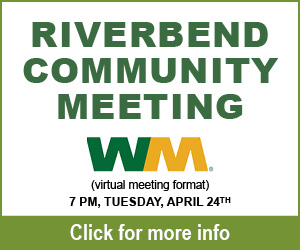Lodging tax for roads worth a look, if legal
No prudent office-holder plunges blindly forward with a new tax proposal. But Yamhill County Commissioners Stan Primozich and Rick Olson seem well justified in their desire to place a transient lodging tax on an upcoming ballot for voter consideration.
Where the justification is lacking is in Commissioner Mary Starrett’s refusal to consider any new tax at any time for any reason. Her kind of absolutism and intransigence does nothing to further the good-faith brokering democracy demands.
In this case, however, Starrett’s unwavering objections may not be the only hurdle.
Primozich and Olson are looking for ways a rural county can address road maintenance and patrol demands imposed by a burgeoning wine industry.
ncreasingly, vineyards, wineries and tasting rooms are coming to dot hilltops virtually everywhere. And increasingly, state and local regulations are allowing them to use food, music and lodging as lures to draw affluent out-of-town visitors.
That’s all well and good, but the influx taxes rural roads not intended to handle a steady stream of tourist traffic.
It seems only logical to turn to a source designed to tap the very people creating the problem with a transient lodging tax. That serves with even greater precision than a sales tax to shift the burden from locals to visitors.
The rules regulating Oregon’s transient room tax use may take issue with that.
In a 2008 opinion by then-Attorney General Hardy Myers, responding to a question from a Oregon Tourism Commission executive officer, Hardy stated: “The legislature most likely did not intend “tourism-related facilities” to encompass roads and other infrastructure simply because they are used, even heavily, by tourists as well as locals.”
Comments to the county board by Tillamook County Commissioner Bill Baertlein suggest that his county and others have acted without regard to the form AG’s opinion. In our view, any Yamhill County rural road that leads to a vineyard or winery that attracts tourists should be fair game on which to use transient tax dollars. Using that money for police enforcement, however, is probably an unlawful stretch of the “tourist related activities” definition.
Either way, there seems to be bureaucratic gray areas to clear up before any ballot measure is sent to voters.
Baertlein also encourages the board to resist pressure to pass a lodging tax to fund a county-based marketing and advertising firm. We agree. Tourism promotions are handled sufficiently by the entities created from city taxes, like Visit McMinnville.
We think the two supportive commissioners are sensible in proposing to allocate the resulting revenue to concrete facility and service needs rather than still another layer of marketing.
Every corner of the country is already charging such a tax. So constituents of a county without one are not only carrying the burden at home, but also on the road, as they’re picking up a tourist services bill just about everywhere they go.
Let the consideration continue. The electorate deserves to be heard if a proper proposal is put on its ballot.









Comments